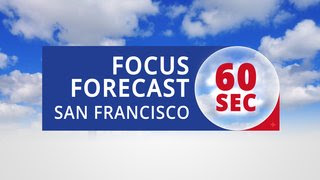I am always suspicious of economists who throw out the possibility that there is a 10% chance that some event will occur. How exactly do they come up with this percentage? I always hold the view that it is major league butt covering.
I think meteorologists do something of the same. I subscribe to the Weather Channel email forecast for San Francisco, mostly to get an idea of the temperature, which does fluctuate. But as far as precipitation, it just hasn't rained more than maybe three times in the last year.
But the email forecast almost always shows (see below) a 10% chance of rain. How are meteorologists coming up with this number? If they say, almost everyday, that there is a 10% chance, wouldn't that mean it should be raining once every 10 days, and roughly 3 times a month?
That's not close to occurring. So what is this 10% other than some crazy butt covering by weathermen?
-RW













RW
ReplyDeleteAs I understand, a chance means that there is an x% probability of rain in a region, but only y% of the area will actually see rain.
From UT Austin-
Using this, here are two examples giving the same statistical result:
(1) If the forecaster was 80% certain that rain would develop but only expected to cover 50% of the forecast area, then the forecast would read "a 40% chance of rain" for any given location.
(2) If the forecaster expected a widespread area of precipitation with 100% coverage to approach, but he/she was only 40% certain that it would reach the forecast area, this would, as well, result in a "40% chance of rain" at any given location in the forecast area.
That said, the 10% probably is just CYA for the Northern Left Coast.
Simple put, no. The 10% chance of rain is independent of any previous day's rain or shine. That is to say, each day it is a 1 in 10 chance. The chance does not go up to 2 in 10 because yesterday it didn't rain.
ReplyDeleteSame concept as the roulette wheel... Just because the ball hasn't landed on the green square in 200 spins does not increase the probability that it will land on the green square the next time.
But if a roulette wheel only has 10 possible slots and a given number only comes up three times out of every 365 spins that's not 10% odds on any spin. The meteorologists are butt covering.
DeleteIf a roulette wheel has 10 slots, the probability of the ball landing in any one slot is always 10%. It does not matter what it has done in the past because each spin is an independent event. Probability is not calculated based on historical evidence, it's calculated on possible future events.
DeleteLook into who owns the Weather Channel, Weather Underground, etc. Same folks who own the geoengineering patents. The West Coast is being "droughted." There is no natural weather.
ReplyDeleteIn Virginia, during the winter, they see the clouds rolling in from the west. The proclaim gloom and doom almost every time, telling every one to stock up on milk, eggs bread and toilet paper. The next day there is a dusting. It happens very often and the next day the meteorologist(s?) says nothing about how incorrect they were. Some of them do, but most of the time if they are held to an explanation, they just say that there was a consensus of opinion about the weather conditions and every one else got it wrong too.
ReplyDeleteIf meteorologists don't know if itching rain or not they will say a 30% chance. That way, if it doesn't rain everyone thinks, "Of course it didn't rain. There was only less than 1/3 chance." If it rains, people say, "Well, there was a 1/3 chance after all..."
ReplyDeleteLearned this from an old USAF weatherman.